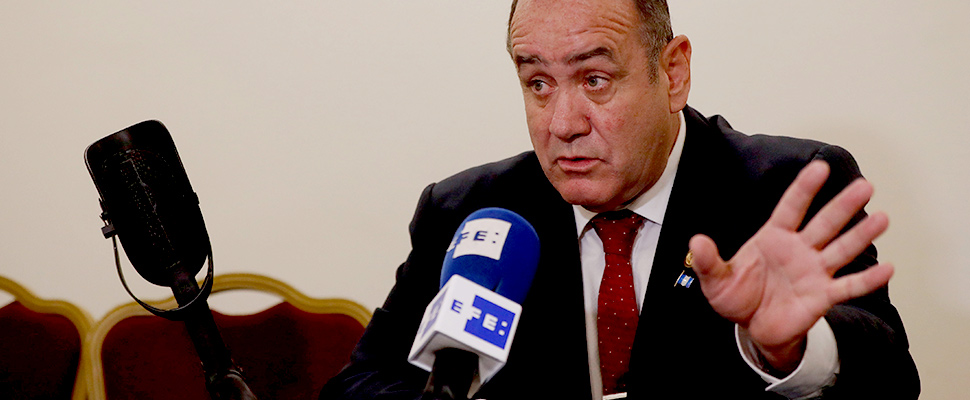Giammattei will face titanic task to fight corruption in Guatemala
After 12 consecutive years trying to reach the presidency of Guatemala, the conservative Alejandro Giammattei finally achieved his mission in Sunday's ballot, but will face a titanic task when he assumes in January 2020.

The elected president of Guatemala, Alejandro Giammattei, in an interview during his presidential candidacy at a hotel in Guatemala City (Guatemala). EFE / Esteban Biba
Reuters | Diego Oré y Sofia Menchu
Listen to this article
Leer en español: Giammattei enfrentará titánica tarea para combatir corrupción en Guatemala
The surgeon has pledged to fight the corruption that has marked the last five governments and, for this, he will have to weave alliances in a Congress where he does not have a majority that allows him to achieve rapid results.
"The CICIG had many achievements putting people in jail (but) the problem is the system … what needs to be fought are the causes of corruption," Giammattei told Reuters in reference to the International Commission against Impunity (CICIG), a UN body to which the outgoing president decided not to renew his mandate, which expires in September.
According to the NGO Transparency International, Guatemala is one of the countries perceived as the most corrupt in Latin America and its president, Jimmy Morales, will end his term with approval ratings for the soils.
80% of Guatemalans disapprove of his management and, in the first round of June, the party that brought him to power in 2015 – the right-wing FCN – barely achieved 3.5% of the votes, a record for a group that postulates from power
Also read: Alejandro Giammattei achieves the Presidency of Guatemala on the fourth attempt
Morales and his predecessors Otto Pérez Molina, Álvaro Colom, Óscar Berger, and Alfonso Portillo have been singled out for corruption scandals. All of them assumed with the promise to end this bad practice but three stepped on the jail.
While corruption is one of the main headaches of the majority of the nearly 18 million inhabitants, poverty and violence are the biggest responsible for the massive migration of Guatemalans to the United States, something that Giammattei has averaged mitigate through of investments.
The small Central American country is one of the most violent in the world, the only one in Latin America that has failed to reduce poverty in the last two decades and one of the most unequal in the region. Currently, six out of 10 Guatemalans live in poverty, according to official figures.
"(Four years) are insufficient (to make Guatemala a prosperous country). Our plan marks the beginning of what needs to be done in Guatemala in the next 15 years," Giammattei confessed.




